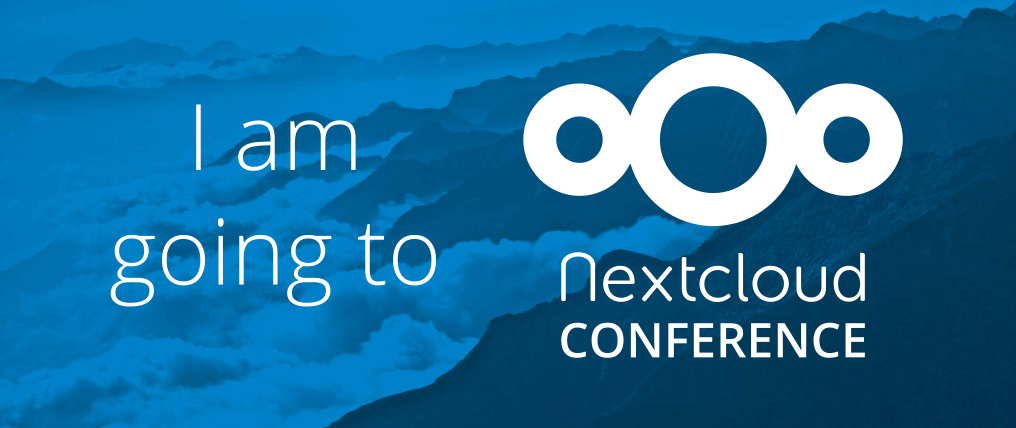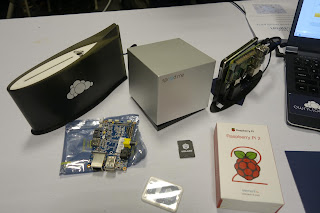 |
| Cool stuff we want to do more with! |
Based on feedback collected from many contributor members we've defined some plans and already made changes to how Nextcloud will be developed. Improved transparency and governance, focus on stability and architectural improvements and other improvements are covered in this blog. Much more is coming, you can join the conversation right now on
our forums!
Community Input
January 2015, I ran a contributor survey to see what the ownCloud community thought about the processes, development focus and our work at the company. I shared the results
by the end of April and pushed internally for the feedback to be taken serious. Some of the changes were implemented but many others were left for a future project to push forward. And Nextcloud will.
feedback and changes
Nextcloud aims to build a sustainable business, not limited by short-term, next-quarter thinking. The relationship with our community of contributors and users is central to our plans.
To quote Frank on this:
The company shouldn't be involving the community more in decision making; that's the wrong way of looking at it. There shouldn't be a fundamental separation to begin with!
And that's what we want. Saying "we're more open" just means being a more friendly ruler - Nextcloud aims to be a participant, not a king, benevolent or not! That is not to say that there should not be any direction but it shouldn't be dictated by a company anymore. Of course, people can decide what they work on, and the company gets to decide what it pays its employees to do. Now there are changes in how we manage our employees too, with far less micromanagement and more freedom. But that's for another blog.
Let's go over the specific pieces of feedback mentioned in the email and received from contributors in other ways and note how Nextcloud intends to address them.
Development
ownCloud is fun and relatively easy to contribute to, with a mostly well running review process and release cycle. There were some practical requests and suggestions as well as concerns about the strain the growth of our project has put on the core developers.
Dealing with Pull Requests
A major issue as detailed in many comments was that it often takes too long for pull requests to be merged. That is, contributions are not handled fast or at all. The result is that, with Core moving fast, contributions get out of sync, no longer apply and are effectively lost. As the graphs below show, the number of pull requests taking longer than 6 months to be merged is rising rapidly while the company is contributing less to development relative to volunteers. Don't get me wrong, it's great to have a growing community! But the support for development from the company needs to keep up with the pace.
Respecting contributions by being responsive and getting them merged will be our number one development priority at Nextcloud. As
research by Mozilla has shown, reacting swiftly to contributions is crucial for growing community and we intend to grow and nurture our contributor base, recognizing outside input as a key driver of growth and success.
More stability
A general point made was that it'd be good to focus more on stability and performance. Some of that has been implemented with the 8.x series and automated testing improvements done over the last year. An especially sore point in terms of stability is the upgrade process, as was very visible with the 9.0 release that is still not available for users of the built in updater app. We will soon blog about the Nextcloud plans with regard to the updater.
Architectural improvements
It was mentioned that some parts of ownCloud are in need of serious architectural love and refactoring. ownCloud has been traditionally rather restrained in this regard and people worried that this "impairs competent developers". While being conservative is important with regards to building a platform (stability and compatibility!) many improvements made their way into the 8 and 9 releases. To preserve a healthy balance, we want to introduce an Architecture team to make decisions that have a big impact on the code base. More details will follow.
Another area of improvement would be to communicate more about architectural changes. Frank has already done a series of blogs about Federation in the past and more will follow.
Apps: support for Calendar, Contacts and Spreed
Many pointed out that apps are extremely important for ownCloud and we should work more on that. Frank has always
emphasized the importance of building a platform and for Nextcloud this will be a central goal.
Nextcloud will officially support the Calendar and Contacts apps and supercharge their development. The Spreed.ME app will bring fully supported audio and video chat to ownCloud. We'll also invest in growing and improving our API for these and other applications.
Process
Some smallish process improvements were requested. More logical labels and tags, for example, which have been pretty much cleaned up since then. Another thing was that big pull requests are often a pain in the ass to get merged and we should tell contributors to cut their work in smaller pieces. This was added to the documentation.
Decision making
Most people were positive about the technical direction of ownCloud - test-driven, stability, architectural work, those were great improvements. Decision making processes in the technical area were not considered very transparent. Comments were even more harsh about the project-wide decision making process.
People feel decisions are often done behind closeddoors. Nextcloud will address this, in part by a new architecture team and in another part by getting rid of most 'hidden' communication channels like internal IRC and mailing lists. We also plan on talking more about our goals and plans in blogs and such.
Longer term planning is a major sticking point: there is little of it public. We need to discuss, together, how to do longer term planning. This doesn't fit too well with github.
Thoughts welcome!
Communication channels
Several people have noted that we've got too many, confusing and overlapping communication channels. We've already eliminated one: mailing lists. We still have a newsletter for those who want to follow us and the blog roll on
nextcloud.com/news. For technical discussions we keep using github (which now
links commits to pull requests so you can find the discussion behind code) and we'll discuss more general subjects on
the forum. Speaking of which, it's now on discourse - a massive improvement I'd say. And email fans can use email to communicate with people on the forum!
Governance
It was already mentioned here and there but there are two other big changes. First, we want the Nextcloud trademarks to be owned by the community, like the ownCloud one should have been. So we will set up a foundation soon which will control the trademark (not have it sub-licensed!) and more in the future.
Second, we will get rid of the Contributor License Agreement. You don't need to sign anything to contribute to Nextcloud.
Third, without CLA there are no proprietary apps part of Nextcloud. We won't be artificially crippling Nextcloud just to get some checkmark on a feature list on the enterprise side. At the same time, of course much functionality is needed for companies, stuff that they need (and home users don't). We will provide that for sure, including migration path, but this time as stand-alone tools. No more exclusivity for a single company, allowing it to do things others can't for legal reason. Our power is in employing the people who write the code, so we can give the best support and develop the best features. If another comes and tops us, well, we should've done better.
Users
There will be improvements for users, too. Already mentioned were our plans to support the Calendar and Contacts apps, Mail too, perhaps more. And of course with Spreed.ME we will integrate open source, WebRTC based video conferencing. There is more coming - for a future blog!
That's all? Nope.
Now I know this is a long blog with lots of details. No surprise, it is based on things we've wanted to improve for many years but could not. Now we can and we will. This is not the end of it, other suggestions and thoughts are more than welcome. Get involved!







































